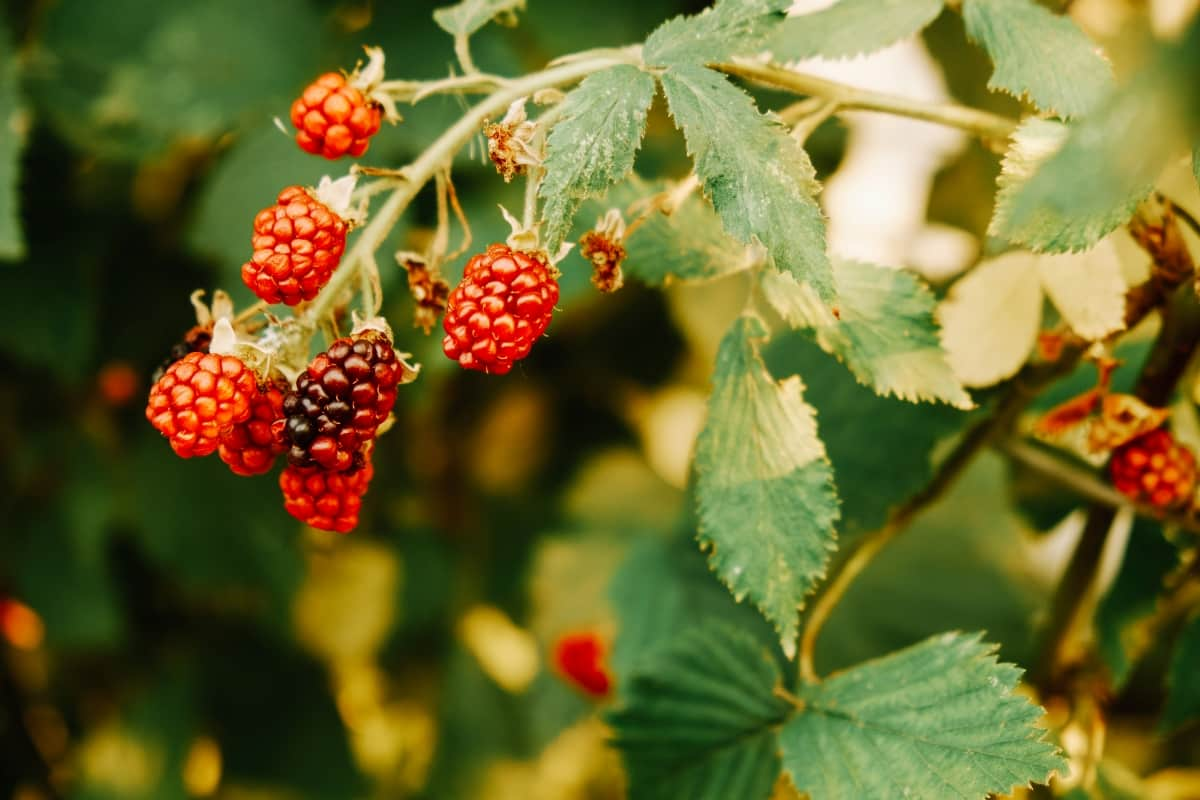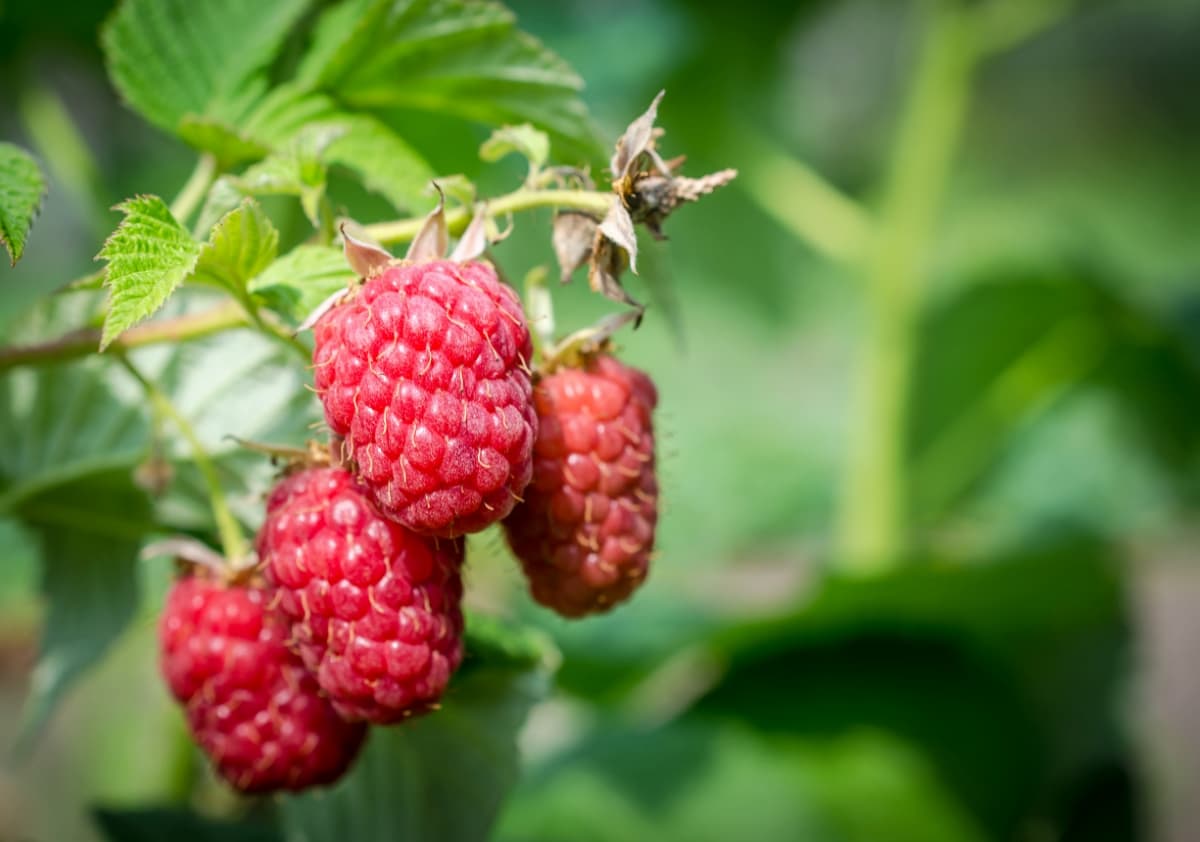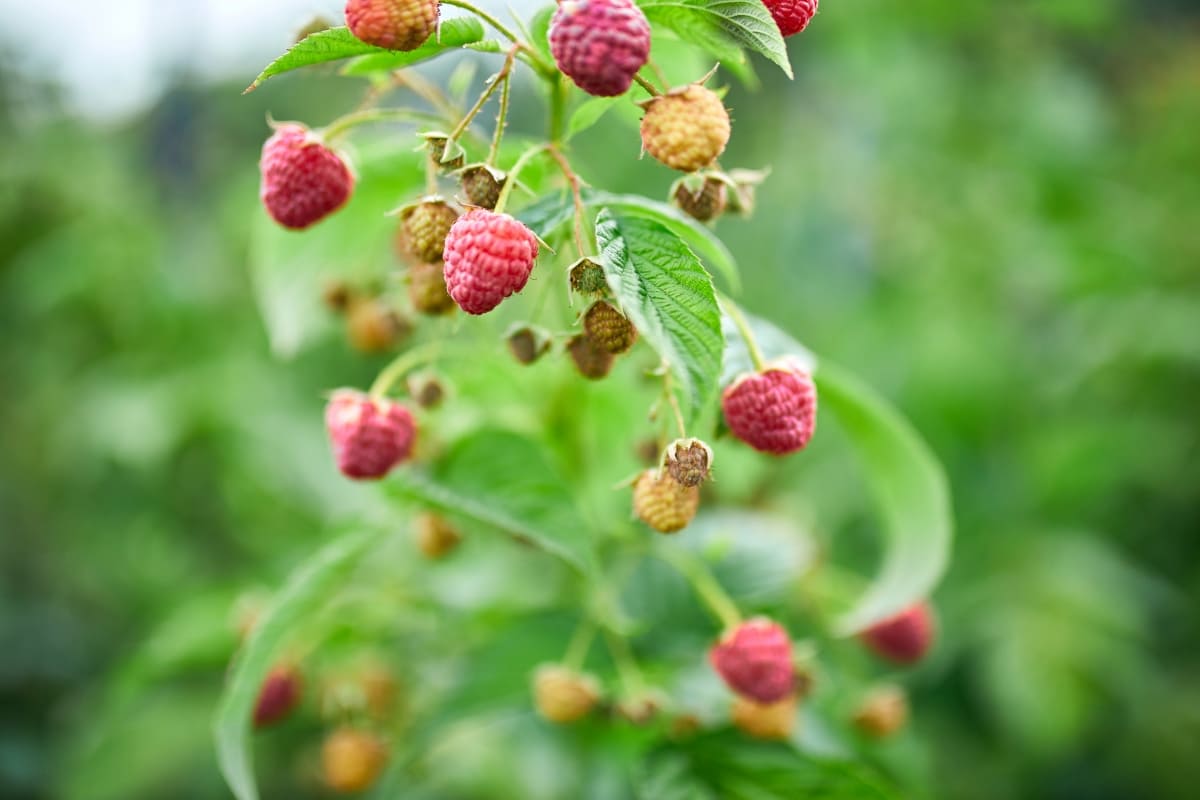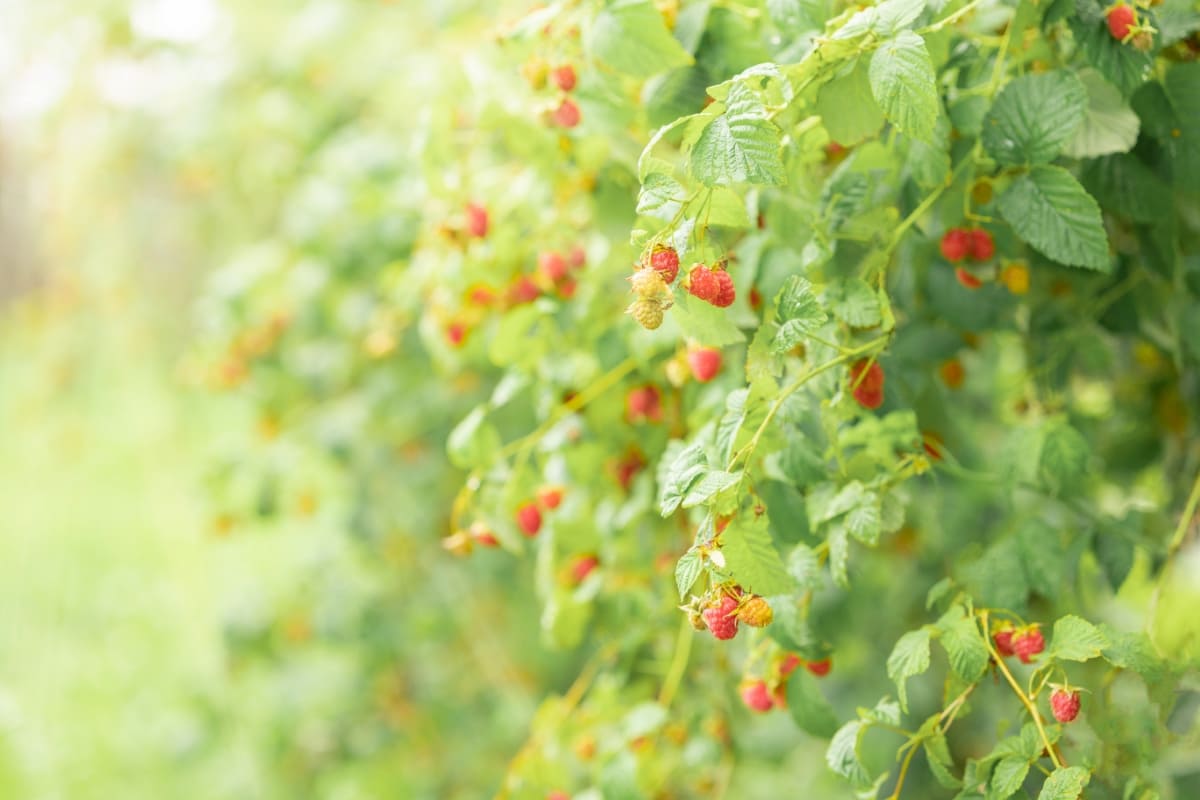To grow healthy raspberry plants, it is crucial to stop fruit rot from occurring spontaneously. A plentiful crop is guaranteed when organic treatments and sustainable methods are fully utilized. This article provides a comprehensive strategy for protecting your raspberry crop in an environmentally responsible way, including everything from soil management to DIY pesticides.

How to Prevent Raspberry Fruit Rot Naturally
Understanding Raspberry Fruit Rot: Causes and Symptoms
Raspberry fruit rot is a serious issue that can harm your crop. Fungus Botrytis cinerea, which survives in moist environments with excessive wetness, inadequate air movement, and dense plants, caused this rot. Symptoms include a smelly odor, fuzzy texture, and gray mold on berries. The fungus feeds on damp, crowded conditions, infecting your berries. To prevent further damage, it is crucial to identify warning indicators and take appropriate action to prevent further damage. Identifying these issues is crucial for maintaining the health of your raspberries.
Importance of Natural Prevention Methods for Raspberry Fruit Rot
Raspberry fruit rot can be prevented through natural methods, promoting sustainable cultivation and an environmentally friendly, chemical-free gardening practice. A balanced environment with well-maintained soil and disease-resistant varieties enhances natural defense mechanisms.
Introducing beneficial insects and companion planting creates a holistic ecosystem, while homemade organic sprays and cultural practices like proper spacing and pruning minimize humidity and promote airflow. Early detection and regular monitoring are important for timely intervention, fostering a sustainable and thriving garden ecosystem.
Creating a Healthy Environment for Raspberry Plants
To create a healthy habitat for raspberry plants, prepare well-draining, organic-rich soil with a pH of 5.5 to 6.5. A soil test can help make accurate adjustments. Plant raspberries in an area with at least six hours of sunlight per day, allowing air circulation to reduce fungal diseases. Mulching helps regulate temperature, weed suppression, and soil moisture retention.
In case you missed it: 1-Acre Raspberry Farming Project Report: Production Economics, Cost and Profit Analysis

Organic mulches like wood chips or straw feed the soil. Frequent pruning promotes airflow and sunlight penetration. Water regularly, especially during fruit development, and avoid overhead watering to reduce leaf moisture, which can spread disease. Combining these techniques ensures a healthy environment for raspberry plants.
Soil Management Techniques to Prevent Raspberry Fruit Rot
To prevent raspberry fruit rot, ensure well-draining soil, incorporate organic matter like compost, maintain a slightly acidic to neutral soil pH, implement regular mulching, rotate crops yearly, and use green manure cover crops during fall. Regularly monitor soil moisture levels and adjust irrigation practices.
These techniques create an environment that fortifies raspberry plants against fruit rot, promoting a thriving and disease-resistant crop. Regular mulching, crop rotation, and green manure cover crops also help maintain a healthy root environment and prevent rot-causing pathogens.
Organic Pest Control Strategies for Raspberry Gardens
For raspberry gardens to remain healthy and chemical-free, organic pest management is essential. Begin by introducing beneficial insects that naturally prey on dangerous pests, such as predatory beetles and ladybugs. Adding companion plants, like basil and marigolds, can help keep pests away. Natural insecticide neem oil kills pests by upsetting their life cycle while sparing beneficial insects.
In addition, pests are physically blocked with diatomaceous earth, a powder derived from fossilized algae. To stop pests from spreading, regularly check plants for indications of infestation and take quick action to solve any problems. This all-encompassing strategy produces a durable and well-balanced raspberry garden.
Beneficial Insects: Allies in Raspberry Fruit Rot Prevention
As partners in the garden ecology, beneficial insects are essential in naturally preventing raspberry fruit rot. For example, ladybugs are ferocious eaters of aphids and other dangerous pests that can cause fruit rot. Lacewings are another ally that feeds on tiny insects and their larvae. By preserving an environment in balance, these helpful insects lessen the need for pharmacological treatments.
Gardeners can reduce the risk of raspberry fruit rot by creating an automated and sustainable environment that attracts and nourishes the colonies of these natural predators. This method ensures a robust and flourishing raspberry crop by protecting the fruit while also enhancing the general health of the garden.
Companion Planting for Natural Raspberry Protection
A clever gardening technique for naturally shielding raspberries from pests and illnesses is companion planting. By combining raspberries with complementary plants, you can increase biodiversity and lower the chance of fruit rot. Certain plants, like marigolds, release substances that discourage dangerous nematodes, while scented herbs like mint and basil can repel common raspberry pests.
Furthermore, adding nitrogen to the soil through the planting of beans or peas close to raspberries might encourage the growth of healthier plants. Plants and their symbiotic interaction create a balanced ecology that is less inviting to diseases. Adding these companion plants to your garden not only protects your raspberry yield but also fosters a more resilient and sustainable landscape.
Disease-Resistant Raspberry Varieties: A Sustainable Approach
Cultivating a robust and sustainable garden requires careful consideration of disease-resistant raspberry types. Because these types naturally resist common ailments, fewer pharmaceutical interventions are required. Examples are “Tulameen,” which shows resilience to yellow rust, and “Heritage,” which is renowned for its resistance to root rot.
In case you missed it: Fertilizing Potted Raspberries: Organic, Natural, Homemade, NPK, and Schedule

Gardeners can reduce the chance of disease outbreaks by selecting such kinds, assuring long-term success and environmental health. In addition to providing a consistent yield, disease-resistant raspberries support more environmentally friendly and sustainable farming practices. Choose your raspberries wisely for a productive, low-maintenance landscape that supports sustainable agricultural methods.
Homemade Organic Sprays for Raspberry Fruit Rot Control
- Neem Oil Spray: Neem oil, derived from the neem tree, serves as an excellent organic pesticide. Its antifungal properties make it effective against fruit rot. Mix 1-2 spoons of neem oil with water and a few drops of dish soap. Apply the solution to your raspberry plants, covering both sides of the leaves.
- Garlic and Pepper Repellent: Create a potent repellent by blending garlic cloves and hot peppers. Strain the mixture and dilute it with water. Spray this organic concoction on your raspberry bushes to deter pests and fungal pathogens.
- Baking Soda Solution: Baking soda, when mixed with water and soap, can be used as a natural fungicide to prevent and control fruit rot in raspberry plants.
- Apple Cider Vinegar Tonic: Apple cider vinegar, known for its antifungal properties, can be mixed with water and applied as a preventive spray. This acidic solution helps in maintaining an environment hostile to rot-causing agents.
- Eucalyptus Oil Infusion: Eucalyptus oil is a natural antiseptic. Infuse a few drops of eucalyptus oil in water and spray it on your raspberry plants. This not only fights fruit rot but also provides a refreshing aroma.
Cultural Practices to Minimize Raspberry Fruit Rot Risk
A significant worry for growers is that cultural techniques are essential to reducing the possibility of raspberry fruit rot. First and foremost, make sure that plants are spaced appropriately to improve air circulation and lower humidity since too much moisture encourages the growth of rot. Using a soil mix that drains efficiently aids in preventing waterlogging around roots.
Pruning procedures are essential; cut off any infected or dead canes right away. Mulch used around the base of plants helps manage moisture and prevents the spread of fungus spores. Check plants often for disease indicators and take quick action if any manifest. Together, these cultural practices foster an environment that deters raspberry fruit rot and encourages the growth of a better, more resilient crop.
Frequently Asked Questions (FAQ) on Raspberry Fruit Rot
When is the Best Time to Apply Fungicides for Raspberry Fruit Rot Prevention?
Fungicides are often applied preventatively, especially during periods of high humidity or when conditions are conducive to disease development. Follow the recommendations on the product label.
Can Raspberry Fruit Rot Spread to Other Plants in My Garden?
While raspberry fruit rot is specific to raspberries, some fungal pathogens can affect a range of plants. It’s essential to practice good garden hygiene, including removing and disposing of infected plant material properly.
In case you missed it: A Versatile Creeping Raspberry Groundcover Plant

Conclusion
Safeguarding raspberries from fruit rot naturally involves a holistic approach. By maintaining soil health, employing organic pest control, and choosing disease-resistant varieties, growers can foster a resilient environment. Integrating beneficial insects, practicing vigilant care, and utilizing homemade sprays further enhance the efficacy of natural prevention methods, ensuring a bountiful and sustainable raspberry harvest.
- Ultimate Guide to Ossabaw Island Hog: Breeding, Raising, Diet, and Care
- Ultimate Guide to Juliana Pig: Raising Facts, Size, Diet, Care, and Lifespan
- Raising Lleyn Sheep: Disadvantages, Price, Uses, Characteristics, and Care
- Ultimate Guide to Meishan Pig: Breed Facts, Breeding, Raising, and Care
- Ultimate Guide to Teacup Pigs: Raising, Diet, Lifespan, Cost, and Care
- Guide to Raising Poll Dorset Sheep: Facts, Profile, Characteristics, Uses, and Care
- Ultimate Guide to Bighorn Sheep: Characteristics, Diet, Lifespan, Breeding, and Lifecycle
- Ultimate Guide to Raising Katahdin Sheep: Farming Facts, Breed Profile, Uses, and Care
- Ultimate Guide to Raising Oreo Cows: Belted Galloways Farming Facts, Profile, Uses, and Care